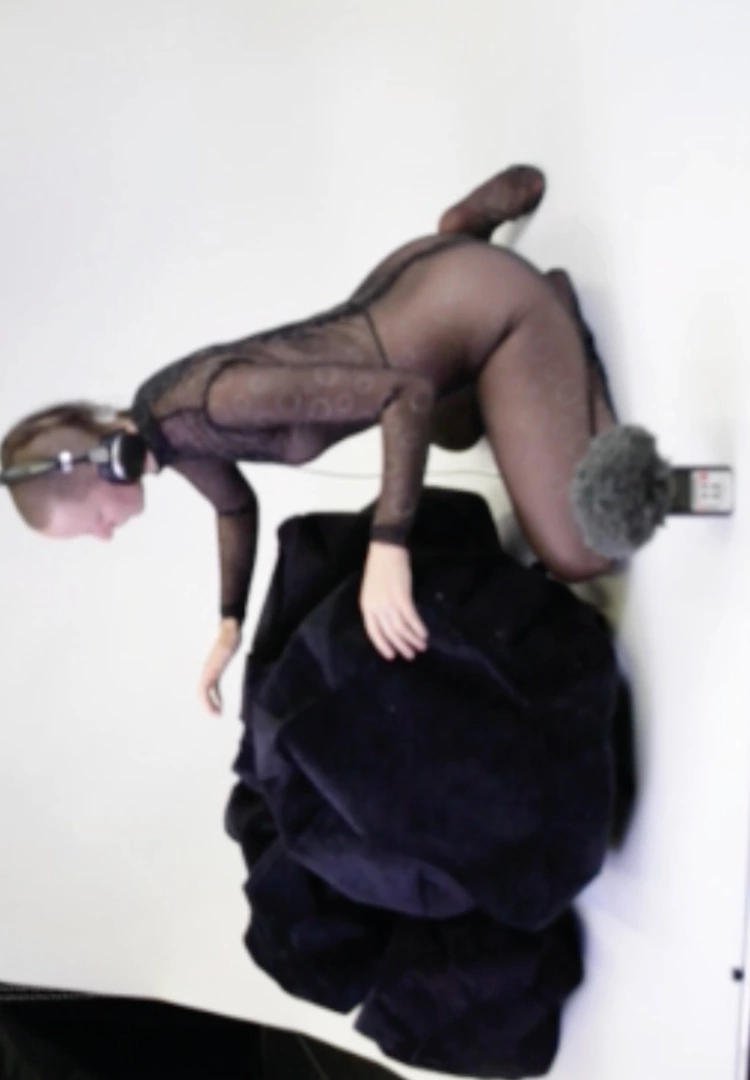ULTIMATELY, CREATIVE MOMENTS BECOME POSSIBLE WHEN WE ENTER UNDISCOVERED TERRAIN
An interview with SENEM WICKI, futures researcher, Co-Founder kühne wicki Future Stuff and Co-Founder of MIND IN Meditation
SENEM WICKI was trained as a Kaospilot in Denmark and as a futures researcher in Zurich. For more than fifteen years she has been working as an innovation expert for various think tanks, companies and public institutions, leading strategy and change processes and helping organisa-tions to shift their focus in a changing world. As an administrative and advisory board member as well as a lecturer, she brings a critical outlook on the future and entrepreneurial thinking into the dialogue.
Senem focuses on the identification of corporate DNAs as a credible starting point for any future strategy and is specialised in the design and management of creative implementation processes and workshops.
Senem is also co-founder of MIND IN, a contemporary training studio for emotional intelligence .
WISH AND REALITY CHECK
DF
What is Future Stuff?
S
We analyse the trend landscape, develop future-oriented strategies and initiate appropriate change processes, for and with our clients.
For me personally, Future Stuff is also an expression of my love for the future and the field of possibilities it holds. At the same time, the wording “Stuff” reminds me with a wink of the eye not to take myself too seriously in all these important questions.
DF
What does creativity mean?
Ultimately, creative moments become possible when we enter undiscovered terrain.
As we humans are creatures of habit and most daily decisions are taken by the inner autopilot, creative moments are in reality quite rare. However, when they arise, they give me a deep satisfaction, because through them, I surprise myself. The most important prerequisite for this to happen is the absence of fear — which in turn is exactly the factor that prevents creativity in many life and work situations. The human being is not only a creature of habit but also a herd animal and is fundamentally geared to behaving in a group manner. Whoever is able to break through this, creates room for new things.
DF
What role does the perception of your own body play in your work? Do you have a particular recipe against stress or your own self-care ritual? And if so: which one?
S
We tend to have the self-image of a brain on two stilts. It happens to me several times a day that I get so deep into my own thoughts that I simply forget that there is still a 60-kilogram body carrying me. Therefore it helps me personally to meditate several times a day — some-times only for a few breaths — or to do a short body scan. I often go for walks when I am looking for ideas. Even when two people are brooding over an idea, a walk together helps — one can think in a fresher way, when the body is in motion. This has often served me as a trick for better, clearer concepts. In our culture, we often forget that our thinking, our spirit is not only in the brain, but also in the whole body. Without physical sensations and feelings, we can neither think nor learn. Thus, we have to take the body with us and take it seriously — and the more actively we do this, the more supportive the body appears, as an energy cell, therapist or early warning system.
By the way, I believe that a good body awareness is not only self-care, but also leads to a more open and empa-thetic, but also more clearly delimited encounter with the counterpart.
DF
How can we, as an educational institution, oppose the economisation of creativity under the dimension of efficiency, while remaining a hotbed, without thereby disqualifying our students in regard to the professional world?
S
Incubation is important, but not as an end in itself. I believe that an incubation period must be productive and that one should friction with the real world during one's education, and not merely ferment in one’s bubble. We have to find ways to win the economy as an ally, not as an antagonist of creativity.
It goes without saying that in a country like Switzerland, in the field of fashion this is a challenge. However, in recent years many established companies outside of the fashion industry in this country have also become more open to unusual collaborations with students. I am a big fan of deals: potential broadening of horizons through student work ( always without guarantee ) in exchange for real company cases and space to gain experience. Companies can learn from the perspectives of fashion students and vice versa. I see a lot of potential for new kinds of hotbeds, from which a rare bird might occa-sionally hatch.
DF
In which direction do you think the teaching of the future is going? What impact do personalised learning and education on demand have on the sense of community?
S
We are all grateful that we no longer have to perform together and in chorus—as is still standard in many places in the world. Learning has become individualised and will continue to be individualised, fragmented and above all: spread throughout the entire life. The times of twenty years of input, forty years of output and ten years of gardening are over.
At the same time, we know from learning research that people learn more effectively in groups. Groups offer the individual the opportunity to get to know other per-spectives and benefit from the experience of others.
One is brought to new thoughts and one notices: there is not only one correct solution. Those who only follow their own learning plan ( in the USA this is currently increasingly being done with AI support ), do not learn to argue or to make their knowledge — or open questions — understandable to others.
In the future, it will be necessary to find a good balance between moments of individual concentration in a quiet little room, and exchange and cooperation in a group — be it analogue or virtual. The more experienced we are in consciously deciding when which form of work is appropriate, and the better we are at switching from one state to another, the greater the learning success. In the future, this will probably become a quality feature of teaching: how good a school is able to broaden the students’ ability to learn. The learning ability and no longer just the — constantly expanding — content of teaching becomes the learning objective.
DF
To what extent is the environment ( local and related to people ) formative for what one does or is able to do?
S
Precisely because we are immersed in the digital world and sometimes never leave our filter bubble, physical places can provide important impulses. Places can literally touch us, stimulate our senses, and we meet other people who have the same effect on us.
Places affect our spirit — churches, for example, were not built the way they were built just for fun. Humanity has long been aware of the power of spatial effects. Today, this knowledge is also beginning to be explored scientifically, empirically, for example within architectural psychology. Despite extensive virtual networking, many people in our society feel increasingly left on their own. This is where a school building — even if visited irregularly — can have a meaningful, motivating and communication-enhancing effect. A school creates a space for exchanging and connecting with each other beyond the organisational level.
DF
What advice would you give to people working in the creative industry in general?
S
I gladly share the most important insights from the last 20 years of my practice:
1
LEAVE THE COMFORT ZONE.
We only learn on undiscovered terrain.
2
REFLEXION.REFLEXION.REFLEXION.
Invest at least ten per cent of each project in reflection. This is where the learning is hidden, not in “doing”.
3
CLARIFY THE EXPECTATIONS IN A BETTER WAY!
Most projects fail because the people involved do not clearly articulate their expectations.
4
NETWORKING AS AN END IN ITSELF IS A WASTE OF ENERGY.
However, anyone with a genuine interest in content can dare to contact anyone — be it the CEO or the Federal Council.
5
GIVE EACH OTHER COMPLIMENTS.
In Switzerland, we are obsessed by the idea of “constructive feedback”. All too often, the praise and the thanks are forgotten.
6
WORK WITH PEOPLE WHO ARE DIFFERENT FROM YOURSELVES.
We tend to team up with equals, to clone ourselves. Yet the exact opposite is beneficial for the creative process: the more differences in a group, the better the result.
7
WE ARE NOT WHAT WE DO.
We all identify very strongly with our work, and I don’t think that’s healthy. Try to create at least a little distance between what you do and who you are!












